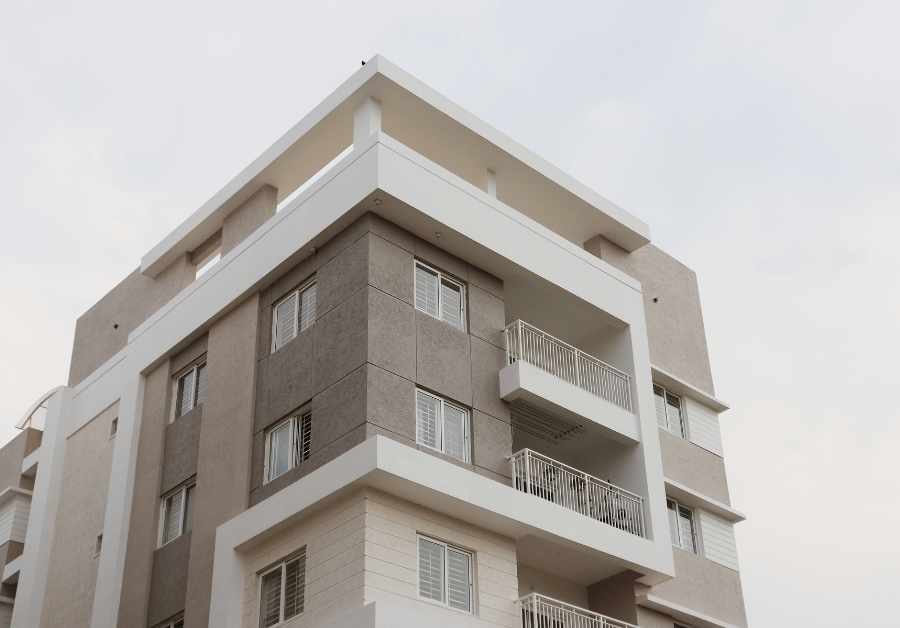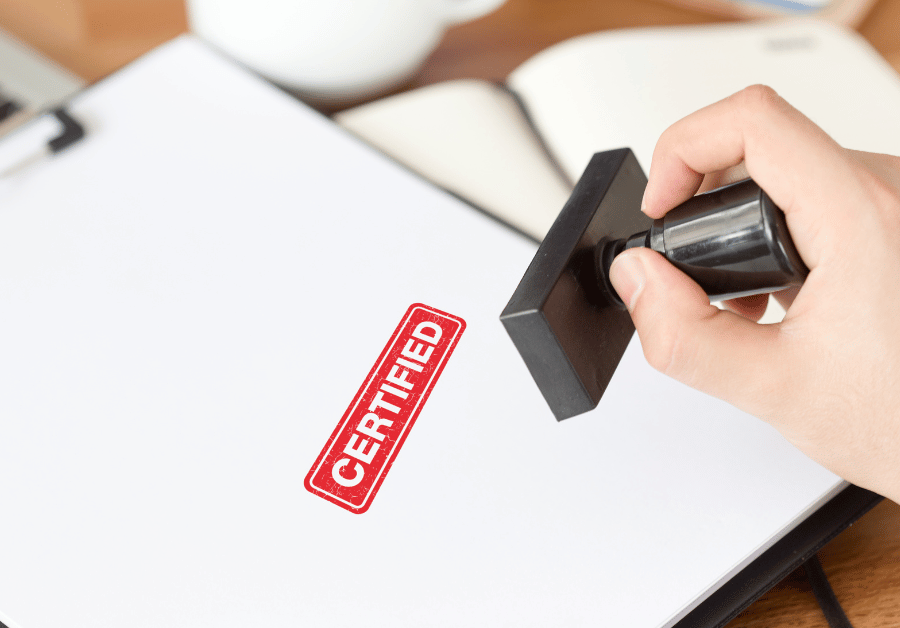Building Certifier Near Me: Your Essential Australian Guide to Seamless Approvals
Embarking on a building project, whether it’s a dream home, a savvy renovation, or a new commercial venture, is an exciting time. But amidst the excitement, there's a crucial step that often feels like navigating a maze of regulations and red tape: securing the necessary building approvals and ensuring compliance. This is where a building certifier near me becomes your invaluable partner in Australia. If you're in Sydney, Melbourne, Perth, Brisbane, Adelaide, or Hobart, understanding their role and how to find the right one is paramount for a smooth, compliant, and stress-free construction journey.
At Get 3 Quote, we understand the challenge of finding reliable professionals. Our mission is to connect you with trusted local service providers, making the complex process of securing a building certifier simple and straightforward. Let's delve into everything you need to know about these essential industry experts.
What Exactly is a Building Certifier? Your Project's Regulatory Navigator

A building certifier, also known as a building surveyor or private certifier, is an accredited professional responsible for ensuring that your construction work complies with the relevant building codes, standards, and legislation. In Australia, this includes the National Construction Code (NCC) and various state and local government requirements. They are the gatekeepers of safety, accessibility, and structural integrity for your building project.
Think of them as your project’s regulatory compass. They review plans, issue building approvals (like a building permit), conduct mandatory building inspections at critical stages, and ultimately issue a final certificate of occupancy or use, confirming your structure is safe and compliant. Without their sign-off, your building work cannot legally proceed or be occupied.
Private Building Certifier vs. Council Certifier: Understanding Your Options
Historically, local councils were the sole providers of building certification services. However, most Australian states now allow for private building certifiers – independent professionals accredited to perform the same functions as council certifiers. This has introduced choice and often greater efficiency for property owners.
- Private Building Certifier: These are independent professionals or firms (like those you’d find through Get 3 Quote, such as Fluid Building Approvals or DG Certifiers) who can offer more personalised expert advice, often faster turnaround times for building approval, and greater flexibility. They are highly competitive and can be a significant advantage, particularly for complex projects or when time is of the essence. Many firms, like those serving Brisbane QLD or the Sunshine Coast, specialise in a range of services from residential to commercial building approvals.
- Council Certifier: Your local city council (e.g., Brisbane City Council) also provides building certification. While they offer a public service, they can sometimes have longer processing times due to higher caseloads.
For many property owners, engaging a private building certifier is the preferred option due to their focus on client service and often streamlined application process. They are adept at navigating the nuances of the development application process and can provide invaluable expert advice from the outset of your building project.
Why Do You Absolutely Need a Building Certifier?
It's not just a good idea; it's a legal requirement for most building work in Australia. Here's why a building certifier near me is indispensable:
- Legal Compliance: They ensure your project adheres to the National Construction Code, local planning schemes, and specific state regulations. This prevents costly rectifications, fines, or even demolition orders down the line.
- Safety & Integrity: Certifiers verify that your building is structurally sound, safe for occupants, and meets fire safety, health, and accessibility standards.
- Insurance & Resale Value: Proper building certification documents are crucial for insurance purposes and are often required when selling your property. Unapproved work can severely devalue your home or business.
- Expert Guidance: From initial design queries to final completion, a certifier provides invaluable expert advice, helping you understand and meet regulatory requirements. They can assist with the development application and overall project management.
- Mandatory Inspections: They conduct essential building inspections at various stages (e.g., footing, slab, frame, final) to ensure work aligns with approved plans and standards. This includes specific checks for things like pool safety or commercial building compliance.
The Building Approval Process: A Step-by-Step Journey with Your Certifier
Understanding the typical stages of the building approval process can demystify the journey and highlight where your building certifier steps in:
- Initial Consultation & Project Assessment: Once you've identified a building certifier near me, your first step is a consultation. They'll review your plans, discuss your project's scope, and provide initial expert advice on what’s required for building approval. This might include assessing if a development application is needed through your local city council.
- Documentation Submission: You'll provide detailed plans (from building designers), engineering reports, soil tests, and other necessary certification documents. The certifier assesses these against relevant codes and regulations.
- Building Approval Issuance: If all documentation is compliant, the certifier issues the formal building approval (or building permit). This permit specifies conditions that must be met during construction.
- Mandatory Inspections During Construction: As construction progresses, your certifier (or their nominated inspector) will conduct mandatory building inspections at key stages. These typically include:
- Footing/Slab Inspection: Before concrete is poured.
- Frame Inspection: Before internal linings are installed.
- Final Inspection: Upon completion of all building work. For specific projects, this might also include a pool safety inspection or a dilapidation inspection for nearby properties.
- Final Certification & Occupancy: Once all inspections are passed and any conditions met, the certifier issues a final certificate (e.g., Certificate of Occupancy, Certificate of Final Inspection). This document confirms your building is compliant and ready for use.
Throughout this process, your chosen building certifier acts as a central point of contact, liaising with other professionals like town planners, engineers, and your builder to ensure everything runs smoothly. They are your go-to for accurate information and guidance.
Finding the Right Building Certifier Near Me: A Strategic Approach
With so many options, how do you find the best building certifier near me? Here’s a strategic approach, focusing on what matters most:
1. Prioritise Local Expertise & Location Specifics
While many certifiers operate across regions, finding one with specific experience in your local council area (e.g., Brisbane North, Sydney’s Northern Beaches, Melbourne’s inner suburbs) can be a significant advantage. They’ll be familiar with local planning schemes, overlays, and specific council requirements, potentially streamlining the development application process. Consider their proximity for timely building inspections.
2. Verify Accreditation and Experience
Always ensure your chosen certifier is properly accredited by the relevant state authority (e.g., Queensland Building and Construction Commission (QBCC) in QLD, NSW Fair Trading in NSW, Victorian Building Authority (VBA) in VIC). Look for certifiers with a solid track record and experience with projects similar to yours – whether it’s a residential extension, a new home build, or large-scale commercial building approvals.
As per the Queensland Building and Construction Commission (QBCC), certifiers must meet strict criteria to operate, ensuring high standards of professionalism and expertise.
3. Assess Communication & Responsiveness
Effective communication is crucial. A good certifier will be responsive to your queries, clearly explain complex regulations, and keep you informed throughout the approval process. Look for someone who provides clear expert advice and a transparent service model. This can significantly reduce stress and avoid delays in your building project.
4. Specialisation Matters
Some certifiers specialise. For instance, if you're building a new home, a certifier with extensive residential approvals experience is ideal. If it's a multi-story apartment block, you'll need expertise in commercial building and complex structures. Similarly, for swimming pools, ensure they handle pool approvals and pool safety certificates. Firms like DG Certifiers often list their specialisations, including swimming pool approvals.
5. Check Reputation and References
Online reviews, testimonials, and word-of-mouth recommendations are powerful. Look for feedback that mentions efficiency, professionalism, and helpfulness. A certifier who comes highly recommended by previous clients (e.g., “we would recommend” or “highly recommend” comments) is a strong indicator of quality service. Companies like Rapid Building Approvals often highlight customer satisfaction.
6. Compare Quotes and Services
Don't just go with the first option. Obtain detailed quotes from several certifiers. Compare not just the price, but what’s included in their certification services. Does it cover all necessary building inspections? Is there a clear fee structure for potential additional services or re-inspections? This is where Get 3 Quote excels, helping you easily request a quote from multiple providers.
Navigating Building Regulations in Australia's Key Cities

While the National Construction Code provides a national framework, each state and local council has its own specific planning schemes, by-laws, and minor variations that a local building certifier near me will be intimately familiar with:
- Sydney (NSW): Governed by the NSW Environmental Planning and Assessment Act, Sydney's complex planning rules often require a certifier with strong local knowledge. They manage everything from minor alterations to major commercial building approvals.
- Melbourne (VIC): Victoria's Building Act and Regulations dictate compliance. Melbourne's certifiers are crucial for navigating heritage overlays and dense urban development.
- Brisbane (QLD): The Brisbane City Council and the Queensland Building and Construction Commission (QBCC) oversee building work. Many firms, including those focusing on Brisbane North or the wider Brisbane QLD area, specialise in efficient approvals Brisbane.
- Perth (WA): The Building Act 2011 and associated regulations are key. Perth certifiers play a vital role in ensuring new builds and renovations meet safety and structural standards in a rapidly growing metropolitan area.
- Adelaide (SA): South Australia's Planning, Development and Infrastructure Act 2016 sets the rules. Adelaide certifiers assist with a range of projects, ensuring compliance with local government development plans.
- Hobart (TAS): The Building Act 2016 governs building work in Tasmania. Hobart certifiers are essential for projects ranging from residential additions to commercial developments, ensuring they align with the unique character and regulations of the region.
Regardless of your location, a knowledgeable building certifier is your best asset for understanding and meeting these localised requirements, preventing costly delays or non-compliance issues.
Common Pitfalls to Avoid When Engaging a Building Certifier
To ensure a smooth process, be mindful of these common mistakes:
- Not Checking Credentials: Always verify their accreditation. A non-accredited certifier's approval is invalid.
- Ignoring the Scope of Service: Ensure the quote clearly outlines all included inspection services and fees. Don't assume everything is covered.
- Lack of Clear Communication: If a certifier is difficult to reach or provides vague answers early on, it might be a sign of future issues.
- Delaying Engagement: Involve your building certifier early in the design phase. Their expert advice can help you avoid costly redesigns later.
- Not Providing Complete Documentation: Incomplete building certification documents are a leading cause of delays. Ensure all plans, reports, and forms are accurate and submitted promptly.
Beyond Certification: Related Building Services You Might Need
While your building certifier handles the regulatory approvals, your project might require other essential services:
- Building and Pest Inspection: Often conducted before purchasing a property, these building and pest inspection reports identify structural defects and pest activity. While separate from certification, they are crucial for due diligence.
- Dilapidation Inspection: Recommended for projects near existing structures, this report documents the condition of neighbouring properties before construction begins, protecting you from future claims.
- Town Planners: For complex projects requiring a development application, particularly in sensitive areas or for large-scale developments, a town planner can provide invaluable guidance.
- Building Designers/Architects: These professionals create the plans your certifier will assess. Collaboration between them is key.
How Get 3 Quote Simplifies Finding Your Building Certifier Near Me
Finding the right building certifier near me amidst the vast array of options can be overwhelming. This is where Get 3 Quote steps in, transforming the search into a simple, efficient process:
- Tell Us What You Need: Fill out our simple online form. Describe your project – whether it's a new home, renovation, or commercial building, and your location (Sydney, Melbourne, Perth, Brisbane, Adelaide, Hobart, or anywhere else in Australia).
- Get Quotes from Professionals: We connect you with up to three verified, local private building certifier professionals who match your specific requirements. You'll receive detailed quotes and proposals directly.
- Choose the Best Match: Compare the quotes, review the professionals’ profiles and past customer feedback, and choose the building certifier that best suits your budget, timeline, and project needs. It’s that easy to find someone you can highly recommend.
We take the guesswork out of finding reliable, accredited industry professionals, ensuring you get competitive pricing and quality service. Our platform is designed to cut through the 'red tape' of finding trustworthy providers, giving you peace of mind and saving you valuable time.
Your Building Project Starts with the Right Certifier
The journey of any successful building project in Australia begins with securing the right building certifier near me. They are not just a regulatory hurdle but a vital partner who ensures your investment is safe, compliant, and built to last. From building approvals to final certification documents, their expert advice is indispensable.
Don't let the complexity of regulations deter your dreams. With Get 3 Quote, finding an accredited, experienced, and trustworthy private building certifier in Sydney, Melbourne, Perth, Brisbane, Adelaide, Hobart, or anywhere across Australia is easier than ever. Take the first step towards a stress-free construction journey.
Ready to find your ideal building certifier and get your project off the ground?
